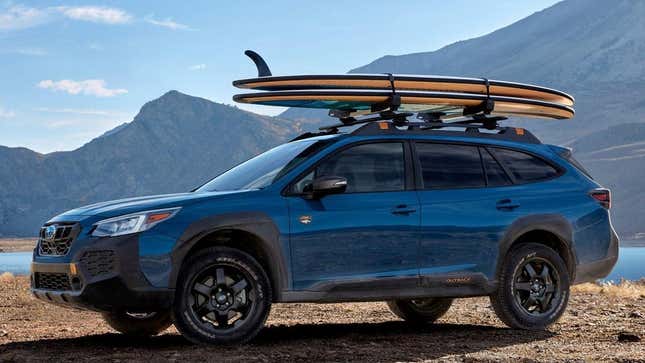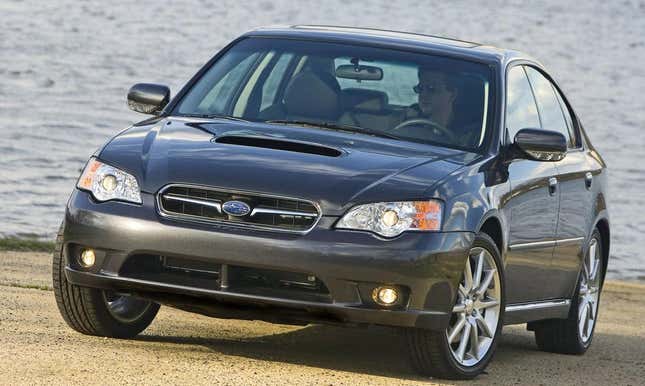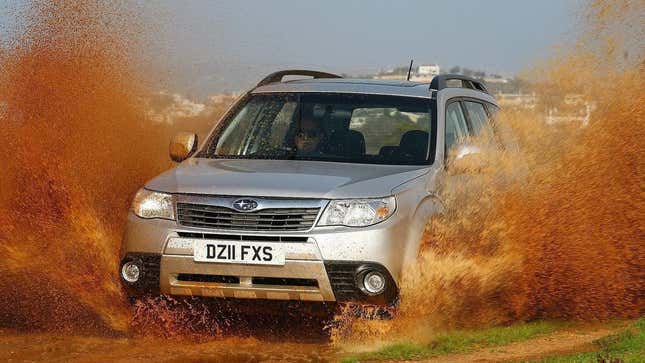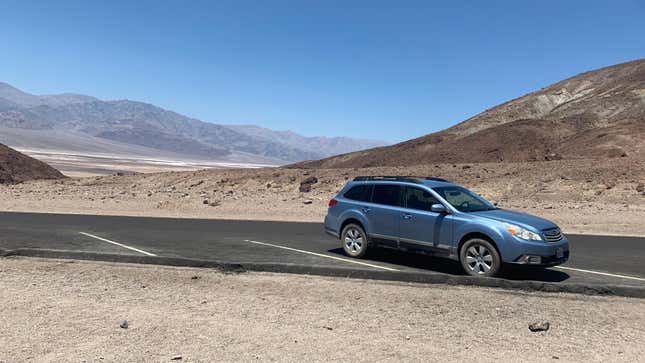
When Subaru first came to the United States, it sold small funky cars that were decidedly un-American. As the company grew its own identity and became more established in the U.S., it became the first automaker to offer an all-wheel-drive passenger car in 1975. Subaru was also an early-adopter of turbocharged engines to bring more power to its line of quirky cars and wagons. Subaru was also one of the first manufacturers to produce a crossover SUV with the Forester in the late ’90s.
As the crossover craze has rapidly ballooned into a crossover pandemic, Subaru didn’t have to abandon its history to align with consumer demand, it just kept producing the same kind of vehicle it had produced since 1975. In contrast, the world stopped when Porsche first introduced the original Cayenne in 2002 because an SUV was a sacrilegious departure from Porsche’s history of producing racing legends and ultra-high-performance cars. When Subaru introduced the Forester as its first crack at an SUV, it flew under the radar since it still aligned with Subaru’s history.

AWD passenger cars started coming into the mainstream in the ’80s and ’90s, but again Subaru was ahead of that curve. It had a preexisting fanbase who valued this feature, allowing it to maintain a distinctive identity through its wide array of AWD passenger car offerings.
Subaru was also an early innovator of AWD as a performance-enhancing feature on its sportier models. Nowadays, most car models regardless of their size or EPA size classification offer an AWD variant from the Toyota Prius to the Mazda 3 to the Mercedes-Benz SL-Class.

The combination of Subaru’s Symmetrical AWD system that delivers an even power split between front and rear wheels, Subaru’s famous boxer engines, and focus on safety come together to form dynamically competent and compelling packages that have wide consumer appeal. Subaru’s focus on promoting active lifestyles has really resonated with modern consumers who seek a do-everything vehicle that gets good fuel mileage, offers the security and capability of AWD, provides exceptional occupant safety, in a package that doesn’t break the bank.
In the early days, Subaru’s sales reflected its then-niche appeal, but as consumer preferences have shifted, Subaru’s distinctive recipe ended up aligning beautifully and current sales reflect that. December 2023 marked 17 consecutive months of Subaru’s sales growth, and according to Good Car Bad Car, Subaru had the highest growth of all mainstream brands in the US from 200,000 in 2009 to 700,000 in 2019; breaking its annual sales record year after year.

I am actually the only person in my family who doesn’t own a Subaru. I encouraged my mom to check out a 2010 Subaru Outback after our second Dodge Grand Caravan finally bit the dust, and my mom immediately fell in love with the Outback’s solidity, AWD security, and tidy packaging. After that, my dad decided to buy a 2008 Forester XT Sports to replace his 1986 Ford Mustang SVO and he was shocked by the comparable performance between the two cars. My brother then bought a 2003 WRX wagon and still loves it to this day. Subaru has experienced this impressive growth by staying true to its brand identity and producing affordable and versatile vehicles.